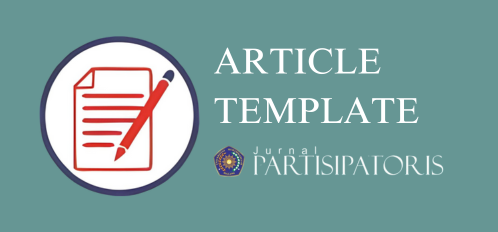WORKERS’ RIGHTS, WELFARE, AND GOVERNANCE: INSIGHTS FROM A MANGO INDUSTRY IN THE PHILIPPINES
DOI:
https://doi.org/10.22219/jp.v2i2.13006Keywords:
Governance, Mango Industry, Philippines, Rights, Welfare, Workers,Abstract
Major concerns centered on the governance of the working sector stems from issues and challenges confronted in the protection of workers’ rights and welfare. This case study discusses the challenges faced by the workers in the Guimaras mango industry and the role of the local government in addressing the gaps in the protection of the workers’ rights and welfare. Findings from the 35 key informant interview with the workers show that there are major gaps concerning workers’ rights and welfare that still needs to address despite the efforts of the government to provide the necessary program, projects, and legislation for the industry. The local government has pursued public services on agricultural support and mechanisms for addressing some of the needs of the mango producers and local legislations on mango production, harvesting, and consumption to protect them and the industry. Major workers’ rights and welfare concerns are mainly on hazardous and dangerous work practices, the undependability of the mango industry as a primary source of income, low wage, and the unstable contractual-hiring of mango workers during the mango season— all have to undermine just to meet the supply needed as demanded by the market. To infer, the workers are essential key players of the mango industry; thus, their rights and welfare need to be appropriately protected. In addressing social justice, fairness, and equality, local governments, humanitarian groups, and helping organizations are encouraged to center their agenda on advancing the rights, interests, and welfare of the sector.
Downloads
References
Abellera, E. M. V. (2011). Explaining Legislative Oversight in Philippine Sub-national Governments: Institutional Impediments in Good Governance. H. Kimura, HM Suharko, AB Javier, & A. Tangsupvattana (eds).
Abellera, E. V. (2012). Legislative oversight under the Philippine Decentralization Policy: Mechanisms, Constraints and Executive Power. International Proceeding of Economics Development Research, 48(23), 106-110. doi:10.7763/IPEDR
Brillantes, A., & Fernandez, M. (2008). Is there a Philippine public administration? Or better still, for whom is Philippine public administration. Philippine Journal of Public Administration, 52(2-4), 245-307.
Briones, R. M. (2017). Characterization of agricultural workers in the Philippines (2017-31). Retrieved from Philippine Institute for Development Studies website: https://pidswebs.pids.gov.ph/CDN/PUBLICATIONS/pidsdps1731.pdf
Egels-Zandén, N. (2009). Transnational governance of workers’ rights: Outlining a research agenda. Journal of Business Ethics, 87(2), 169-188.
Golez, H. (1995). Strengthening the National Mango Research and Development Center in Guimaras, Philippines: BPI-NMRDC.
Habito, C., & Briones, R. (2005). Philippine agriculture over the years: Performance, policies and pitfalls. In conference entitled “Policies to Strengthen Productivity in the Philippines,” sponsored by the Asia-Europe Meeting (ASEM) Trust Fund, Asian Institute of Management Policy Center, Foreign Investment Advisory Service, Philippines Institute of Development Studies and the World Bank, held in Makati City.
Kaufmann, D., Kraay, A., & Mastruzzi, M. (2009). Governance matters VIII: Aggregate and individual governance indicators 1996-2008. The World Bank.
Kaufmann, D., Kraay, A., & Zoido, P. (1999). Governance matters. World Bank policy research working paper, (2196).
Ofreneo, R. E. (2013). Precarious Philippines: Expanding informal sector,“flexibilizing” labor market. American Behavioral Scientist, 57(4), 420-443.
Philippine-Canada Local Government Support Program. (2004). Local legislators’ toolkit. Pasig City: Local Government Academy Philippines-Canada Local Government Support Program
Province of Guimaras. (2018). Ordinances. https://guimaras.gov.ph/ordinances/
Rasche, A. (2010). Collaborative Governance 2.0. Corporate Governance: The international journal of business in society, 10(4), 500-511.
Rodríguez-Garavito, C. A. (2005). Global governance and labor rights: Codes of conduct and anti-sweatshop struggles in global apparel factories in Mexico and Guatemala. Politics & Society, 33(2), 203-333.
Yin, R. K. (2003). Case study research: design and methods (ed.). Thousand Oaks.
Downloads
Published
How to Cite
Issue
Section
License
Authors who publish with Jurnal Partisipatoris agree to the following terms:
- For all articles published in the Jurnal partisipatoris, copyright is retained by the authors. Authors give permission to the publisher to announce the work with conditions. When the manuscript is accepted for publication, the authors agree to the automatic transfer of non-exclusive publishing rights to the publisher.
- Authors retain copyright and grant the journal right of first publication with the work simultaneously licensed under a Creative Commons Attribution-ShareAlike 4.0 International License that allows others to share the work with an acknowledgment of the work's authorship and initial publication in this journal.
- Authors are able to enter into separate, additional contractual arrangements for the non-exclusive distribution of the journal's published version of the work (e.g., post it to an institutional repository or publish it in a book), with an acknowledgment of its initial publication in this journal.
- Authors are permitted and encouraged to post their work online (e.g., in institutional repositories or on their website) prior to and during the submission process, as it can lead to productive exchanges, as well as earlier and greater citation of published work (See The Effect of Open Access).











